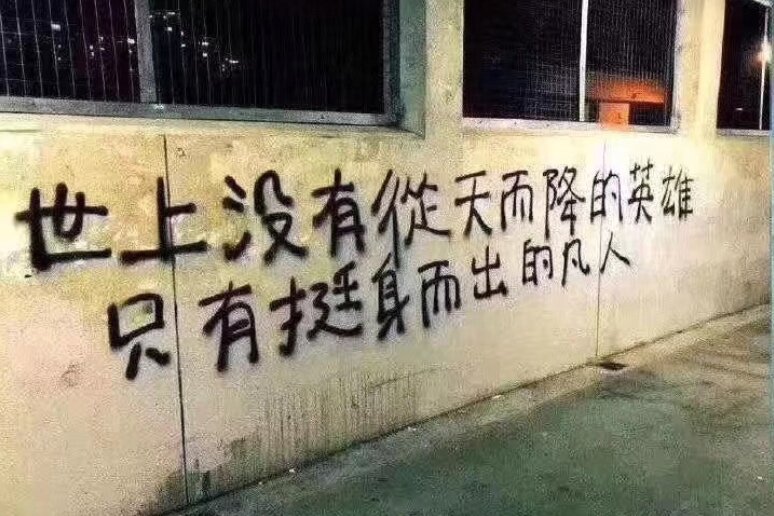Tsai Ing-wen: A Letter About 228 For the Young People of China
In 2013, Tsai Ing-wen wrote a letter to the youth of China about the 228 Massacre, and expressed her hope for a future democratic China.
By Tsai Ing-wen
Translated by Mr. Almost
This piece first appeared in the Chinese edition of Thinking Taiwan (想想論壇). It is translated and reprinted under a creative commons licence.
Today is the 28th of February. On this solemn day, I want to do something that politicians in Taiwan have never thought of before. I want to write down my views on the 228 Incident for the youth of China.
I know this is a bit unexpected. Why should a tragedy in Taiwan be explained to young people on the other side of the Taiwan strait? My idea is very simple. Cross-strait relations need to be based on mutual understanding; if we do not know about the damage of 228 to Taiwan, then the people across the strait will never truly understand Taiwan. If we do not understand the silence and distortion left on Taiwanese society after 228, the people across the strait will never understand the terrible use of state violence by the Chinese Nationalist Party (KMT).
Young people across the strait must bear the burden of China's future freedom and democracy. I sincerely hope with this short article, we can open a window of understanding, let the young people of China learn about the pain of Taiwan's past, and let the young people of Taiwan sincerely hope for freedom and democracy to flourish across the strait. One day, we hope both sides can feel empathy for each other, and there will no longer be prejudice or antagonism.
In essence, 228 was a bloody massacre, where the people encountered violent repression from the state. On February 28, 1947, the KMT government pointed a gun barrel at the Taiwanese people, and targeted individuals who were dissatisfied with the government. Panic-stricken people shrieked and dashed in the streets. The violent regime did not treat the protesters in a peaceful and rational way. Many unarmed Taiwanese died from state violence, and many of the intellectual elite were systematically arrested and massacred by the KMT regime. Taiwanese society fell silent, and this silence allowed the KMT regime to do whatever it wanted. From the beginning of the White Terror, in the following decades, the majority of Taiwanese did not dare discuss their rights, their personalities were twisted, and their dignities shelved.
Tsai Ing-wen (centre left) and with other serving members of government attending the 228 memorial ceremony at 228 Peace Park. Photo courtesy of the Office of the President of the Republic of China (Taiwan).
After that, 228 became a taboo topic. No one dared to speak about it. Even if people wanted to cry, they could not let others know why they cried. For a long time, 228 did not appear in textbooks, and certainly did not appear in the media. The truth was covered up, and this state continued for decades.
This story won't be unfamiliar to you. In fact, a similar situation happened across the strait. But during Taiwan's repressive rule, the Taiwanese people did not lose heart. This is the origin of the Democratic Progressive Party (DPP). By uncovering the forgotten truths of history, and through our unremitting efforts, the DPP has continuously stood in opposition to the KMT. The DPP are not monsters or devils. We are a group of people who love democracy and freedom, believe in the rights and dignity of all peoples.
In private, I often have the opportunity to compare notes with exchange students from mainland China. I ask them about their views on Taiwan. These are the three answers I hear most often: First, Taiwan is very free. Second, Taiwanese people are friendly. Third, before they came to Taiwan, they thought the KMT represented the entirety of Taiwan, but after coming here, they found that this was not true. In fact, this article is intended to tell you a truth and historical view that the KMT do not like to discuss.
In the wake of 228, Taiwan today has democracy and freedom. No one in Taiwan now believes that the government has the right to suppress the people by force, nor that criticism of the government can be silenced by violence. We have traveled a long and arduous road. Today we commemorate 228. I believe that one day, a democratic China will remember the June 4, 1989 protests with the same wisdom. If Taiwan can, then China has no reason not to.
A word of truth can weigh more than the whole world, and a dream can make life glow with light. I hope that one day the truth can be spoken loudly across the Taiwan Strait, and the dream of democracy in China will shine brightly in the world.








